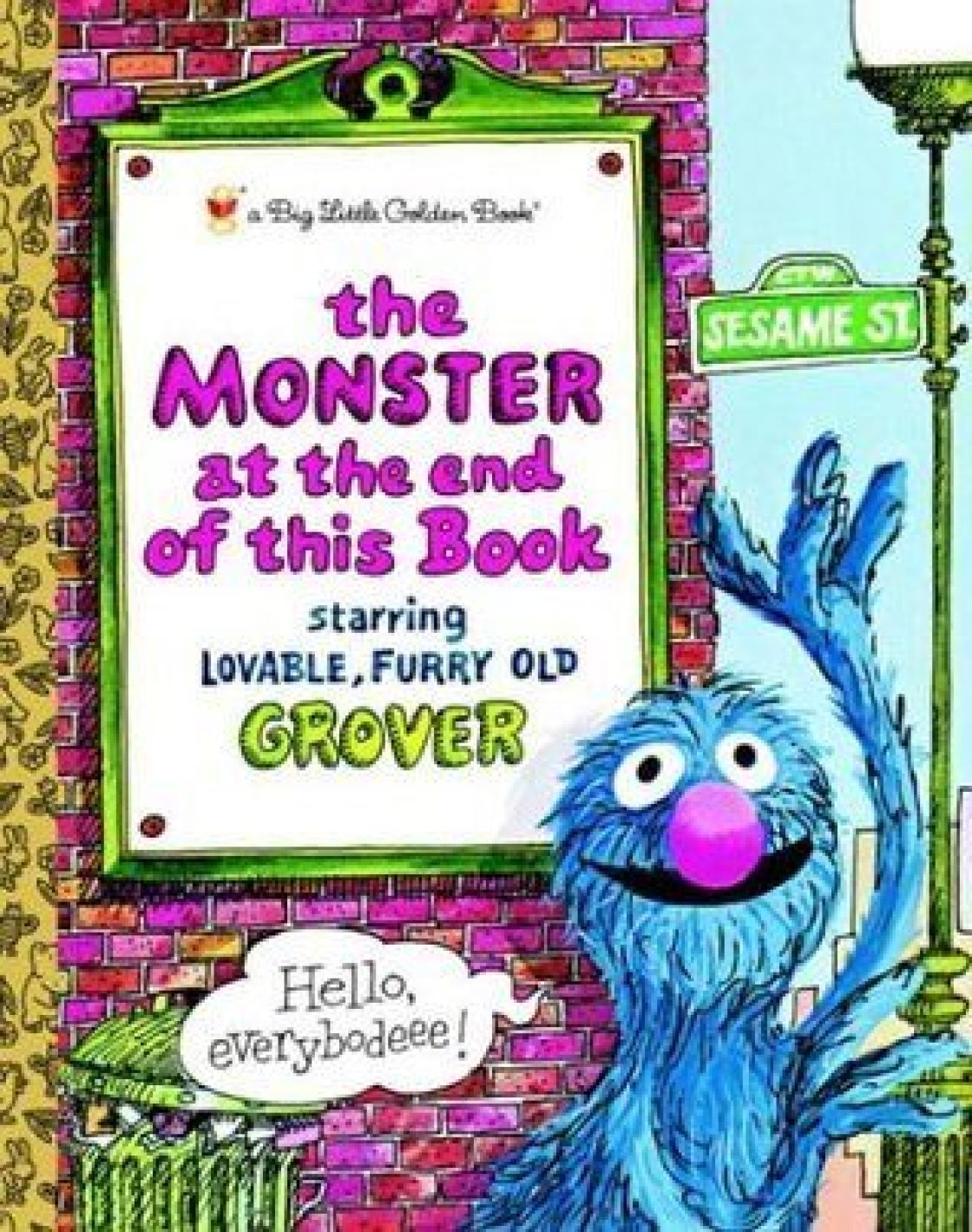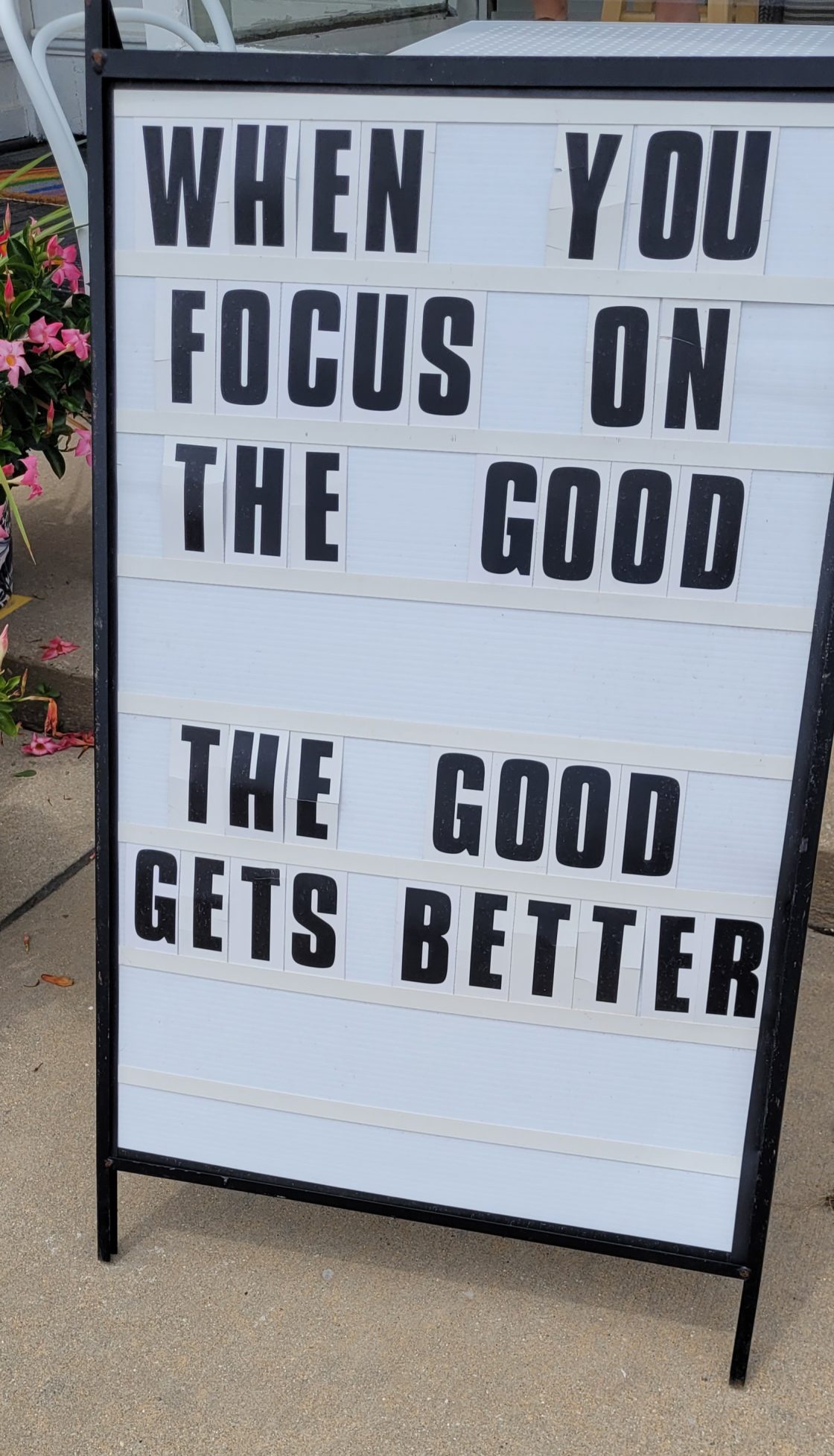
Hello, Edwardsville! My career as your Library Director won’t be about me. It will be about you. But, I do owe you an introduction. Katherine Rose, our illustrious Social Media Coordinator has a list of questions she asks new staff members. She said they were silly little questions, just for fun. But, a couple of them have stuck with me, so maybe they are big questions. One is: What was your favorite book when you were a child? Another is: Would you rather only be able to whisper or only be able to shout?
Here’s something about me: my mother taught me not to “play favorites” (because she had two children and plenty of love for both of us). So, I had plenty of love for many books as a child, but right now I keep thinking about this one: The Monster at the End of This Book: Starring Lovable, Furry Old Grover, by Jon Stone. It’s about fear. Grover, from Sesame Street, has heard that there’s a monster at the end of the story he’s in, and he is absolutely terrified.

Honestly, I was afraid the first time I became a public library director thirteen years ago, absolutely terrified I’d face a problem I couldn’t solve. I faced a lot of those. I’m a Public librarian, and the public will always have problems I can’t solve. A dear colleague of mine, former SIU professor Peter Lemish, worked with me (and many others) on our community-wide 11 Days for Peace initiatives. Dr. Lemish called these Wicked Problems: poverty, homelessness, inequality, all the ways in which humans are imperfect, our solutions are inadequate, all the isms that drive our fears, and all the conflict that disrupts our peace.
One of the not-quite-scary-but-nerve-racking things about sitting down in a former Director’s chair is that no matter how organized they were—and Jill Schardt is impeccably organized—you’ll spend a lot of time combing through files trying to find things. There is serendipity in searching. That’s part of what libraries are about—the serendipity of browsing the shelf.
This morning I serendipitously found the list of Edwardsville Public Library Directors. Sarah Coventry, 1891-1937—a 46 year stretch encompassing the terrors of World War I and the Great Depression. Kathryn Wisher served for two years after her, followed by Winifred Burroughs who led this library from 1939-1952—World War II, from onset to aftermath. Think about the collections she was building, and the reference questions she was fielding. Helen George followed her from 1952-1956, an era when demands for censorship were burning hot. Lilian Correll led through the Civil Rights era from 1956-1970. The next three librarians served short stints, and then came my Mentor, Susan Lucco who served and expanded this library for 21 years. She mentored me through Synergy: the Illinois Library Leadership Initiative where I learned to lead with authenticity, not as some stereotypically stern boss, but as the person I am—that I could work with joy and inspiration and help those around me do the same. Deanne Holshouser went through that leadership program with me, and she became the Director here for 17 years. I did not know Susan Carr, but I did know and admire Jill Schardt, and I was briefly the Mentor at her table when she went to Director’s University, which gives me the sense that I have been circling this place all along.
Here’s the thing: There’s a good chance that some of those librarians may have been quiet, but—make no mistake—they were not timid. They kept serving this community throughout some very scary times and Wicked Problems. I am no shusher. I don’t like that stereotype. But, I was once a Children’s Librarian, and I know that when a crowd gets loud shouting will only contribute to the noise. The trick is to whisper. Almost like magic, the crowd will quiet down so they can listen.

I also know that when people are shouted at they go into their “lizard brain,” that reactive little fight-or-flight nugget at the base of the skull, which is more primitive, irrational, and dysfunctional than one’s brain on the whole. You and I may find something we disagree on, but we will not shout at one another. Let’s whisper, metaphorically, and respectfully, so that we can hear one another with the entirety of our brains.
I cannot solve any of our Wicked Problems. But, that’s no reason not to try. People can do a lot together, and I--WE (a community of people from many different backgrounds, ethnicities, political and religious beliefs)—did make some pretty good headway in Carbondale. For more on that, see the July 6th article by Scott Marion in The Intelligencer. He did a nice job of summing up my history.
There will always be Wicked Problems, but there’s also simply the joyful celebration of literature, art, learning, creativity, and community—library stuff! I just walked to Collins Farms to pick up a salad for lunch, and outside they had this sign: “When you focus on the good, the good gets better.” That statement made me happy, and it struck me as being very you, Edwardsville. Being good, doing good, and feeling good are all worthy of our focus.
For some reason—experience—plenty of love—the spirit of my mother hovering above—I am no longer afraid. We seem to be in an era of Wicked Problems—division, conflict, all those isms—it’s all human interaction, you-me-us, fueled by fear. Don’t get me wrong, Wicked Problems are very real and they present us all with a responsibility to one another. I’ll never forget or escape that. But, I am done with fearing it. Fear doesn’t serve me, and it doesn’t serve us. It robs us of what is good. It’s also, to some extent, derived from misconceptions about ourselves and one another. You know what Grover finds at the end of the book? To his great relief, he finds himself.
